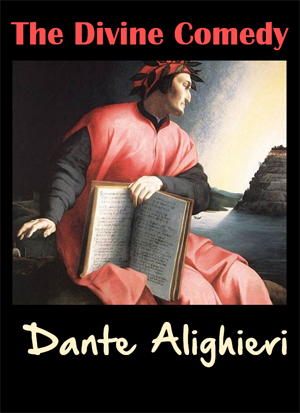Introduction
 No, one absolutely should not! Such I discovered some 30 years ago during a mid-life crisis of my own, when I undertook translating Dante Alighieri’s La Divina Commedia (“The Divine Comedy”) from the original Italian into English.
No, one absolutely should not! Such I discovered some 30 years ago during a mid-life crisis of my own, when I undertook translating Dante Alighieri’s La Divina Commedia (“The Divine Comedy”) from the original Italian into English.
A great number of English renditions exist; certainly it wasn’t my intent to try to better them. I began simply for mental occupation, to try to tell the story in English strictly in the terza rima form of the original, composed in tercets of 11-13 syllables of which the last words or syllables of first and third lines rhyme.
The year of Alighieri’s birth in Florence, Italy is estimated circa 1265 c.e. and the writing of his epic poem, roughly between 1308 and his death. He had named his work only “Comedy”; “Divine” was bestowed by Giovanni Boccaccio, another Italian author and poet.
It is held one of the greatest works of world literature, and gave birth to a new literary formation separate from the reigning Latin of clergy and the sophisticatedly educated.
To download Tosca’s partial translation of Dante Alighieri’s La Divina Commedia (“The Divine Comedy”), click here: One Does Not Dally With Dante.
